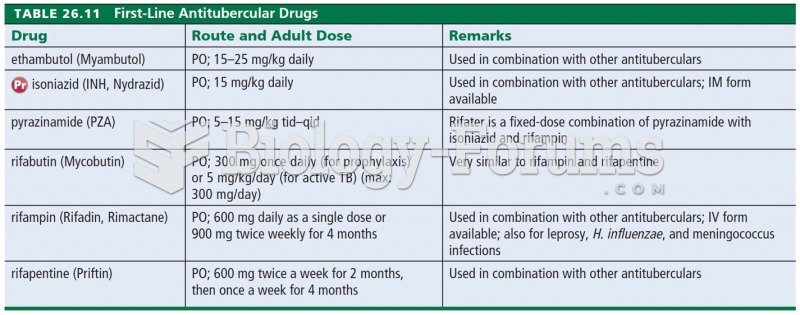|
|
|
Approximately 500,000 babies are born each year in the United States to teenage mothers.
Not getting enough sleep can greatly weaken the immune system. Lack of sleep makes you more likely to catch a cold, or more difficult to fight off an infection.
Between 1999 and 2012, American adults with high total cholesterol decreased from 18.3% to 12.9%
Human stomach acid is strong enough to dissolve small pieces of metal such as razor blades or staples.
Before a vaccine is licensed in the USA, the Food and Drug Administration (FDA) reviews it for safety and effectiveness. The CDC then reviews all studies again, as well as the American Academy of Pediatrics and the American Academy of Family Physicians. Every lot of vaccine is tested before administration to the public, and the FDA regularly inspects vaccine manufacturers' facilities.







